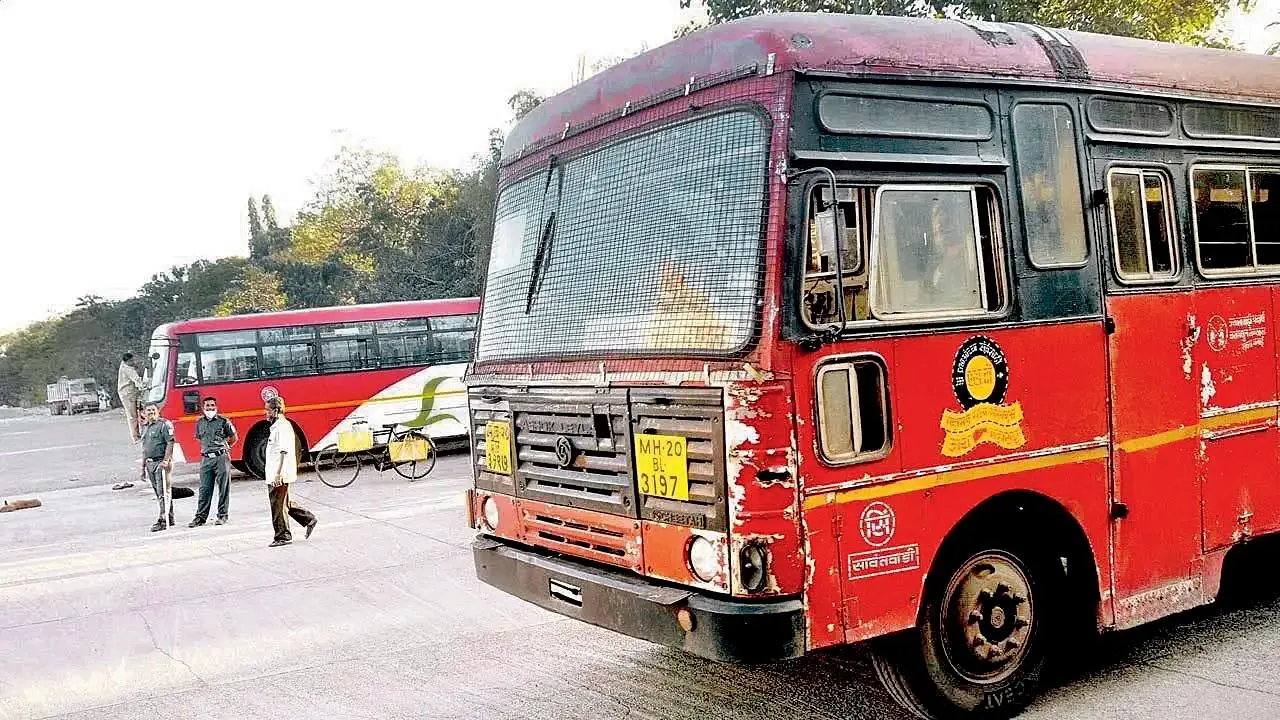MSRTC Safety Crisis 301 Accidents, 35 Fatalities in Pune
The safety of passengers travelling aboard Maharashtra State Road Transport Corporation (MSRTC) buses in Pune Division is under intense scrutiny following the shocking revelation of 301 accidents in the last 21 months. Between March 2023 and December 2024, the number of accidents involving MSRTC buses reached alarming levels, raising serious concerns over the safety measures in place for the daily commuters who rely on this form of public transportation. With 35 lives tragically lost in these accidents, it’s clear that this issue demands immediate attention from both the MSRTC and the state authorities.
The recorded incidents include 150 major accidents and 126 minor ones, highlighting a deeply concerning pattern of risk to public safety. The figures show that nearly half of these accidents were severe enough to result in significant damage and loss of life, with 17 fatalities in 2023 and 18 in 2024. These accidents occurred across various road types, including expressways, highways, and city roads, underlining the extensive reach of this issue. The increasing number of fatalities in the last year, despite ongoing efforts to improve safety, points to the urgent need for more effective measures to protect the public.
Deficiencies in Safety Measures and Driver Training
The sharp rise in accidents has inevitably led to questions about the condition of MSRTC buses, the training of drivers, and the enforcement of safety protocols. While the corporation has stated that regular driver training programmes are conducted, there remains a glaring lack of significant improvements in either preventive measures or skill enhancement for the drivers. Despite ongoing training initiatives, the failure to curb the rising number of accidents suggests that these programs are either insufficient or ineffective in addressing the root causes of road safety violations.
Divisional Controller of Pune, Promod Nehul, responded to the growing criticism by stating, “The training programme of the drivers is consistently happening, and we have given strict instructions to the drivers for passenger safety. A dedicated security team conducts random inspections to monitor alcohol consumption and driver conduct.” While these actions are a step in the right direction, the need for more comprehensive measures such as regular vehicle checks, technology-enabled safety systems, and public awareness campaigns is now more critical than ever.
Actions Taken, but Questions Remain
In response to this crisis, the MSRTC has taken some corrective steps in recent months. Nehul revealed that action had been taken against six MSRTC drivers in the past six months, with three being permanently terminated and three others suspended for violating company norms. These actions demonstrate a firm stance on driver misconduct, but many commuters and safety experts argue that a greater focus should be placed on preventing accidents in the first place rather than merely punishing individuals after the fact. Given the scale of the accidents, it’s clear that a more holistic approach—encompassing better infrastructure, technology integration, and proactive safety initiatives—is required.
A long-term solution would also require deeper structural changes, including investing in the maintenance and modernisation of MSRTC’s fleet, along with revisiting road safety laws to accommodate evolving transportation needs. Given the increasing reliance on buses as an affordable mode of transport in Pune, ensuring that these services are safe and reliable is a responsibility that must be shared between MSRTC, the state government, and the public.
Sustainability Angle: The Need for Safe and Sustainable Transport
This situation not only raises safety concerns but also speaks to a larger issue of sustainable public transportation. As urban centres like Pune continue to grow, the demand for safe, affordable, and eco-friendly public transport systems becomes increasingly vital. The current state of MSRTC buses—with their mounting accident records—puts into question the sustainability of a transport system that is both unsafe and inefficient.
Investing in safer buses equipped with modern safety technology, as well as expanding public transit options that prioritise pedestrian and commuter safety, could reduce fatalities and injuries significantly. Moreover, sustainability in public transport goes beyond just reducing emissions; it includes ensuring that the systems we rely on are safe, reliable, and resilient enough to meet the demands of growing cities.


